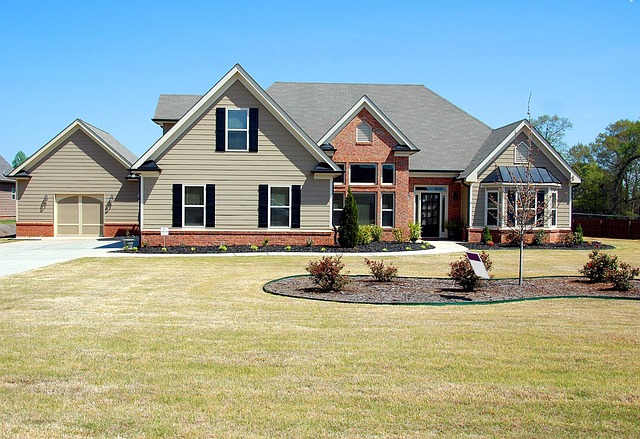Choosing the Right Garage Door for Your Home: Types, Features, and Styles
Garage doors play a crucial role in the functionality and aesthetics of your home. They not only provide security for your vehicles and belongings but also contribute significantly to your property's curb appeal. With numerous options available in the market, selecting the right garage door can be overwhelming. This comprehensive guide will explore common types of residential garage doors, help you understand insulation and security features, and provide insights on choosing the perfect style for your home.

What are the most common types of residential garage doors?
Residential garage doors come in several types, each with its own set of advantages and considerations. The most common types include:
-
Sectional Doors: These are the most popular choice for residential garages. They consist of horizontal panels that roll up and down along tracks, making them space-efficient and easy to operate.
-
Roll-Up Doors: Ideal for homes with limited headroom, roll-up doors coil around a drum above the garage opening. They’re durable and require minimal maintenance.
-
Swing-Out Doors: Also known as carriage doors, these traditional-style doors open outward like a pair of large gates. They offer a classic, elegant look but require more clearance space.
-
Slide-to-Side Doors: These doors slide horizontally along a track, making them suitable for garages with low ceiling heights or obstructions like beams or pipes.
-
Tilt-Up Doors: Operating as a single panel, tilt-up doors pivot from a hinge point at the top of the garage opening. They’re less common due to their space requirements but can provide a sleek, modern appearance.
How do insulation and security features benefit garage doors?
Insulation and security features are crucial aspects of modern garage doors that offer numerous benefits:
Insulation:
-
Energy Efficiency: Insulated garage doors help maintain consistent temperatures, reducing energy costs for homes with attached garages.
-
Noise Reduction: They provide better sound insulation, minimizing external noise and creating a quieter environment.
-
Durability: Insulated doors are typically sturdier and more resistant to dents and damage.
Security Features:
-
Reinforced Locks: High-quality locks and multi-point locking systems enhance the door’s resistance to break-ins.
-
Smart Technology: Many modern garage doors offer smartphone integration, allowing remote monitoring and control.
-
Tamper-Resistant Design: Features like pinch-resistant panels and photo-eye sensors improve both security and safety.
What materials are commonly used in garage door construction?
Garage doors are available in various materials, each offering unique benefits:
-
Steel: Durable, low-maintenance, and available in many styles and colors. Steel doors can be insulated for improved energy efficiency.
-
Aluminum: Lightweight and corrosion-resistant, making them ideal for coastal areas. They’re often used in modern, contemporary designs.
-
Wood: Offers a classic, timeless look with excellent insulation properties. However, they require more maintenance than other materials.
-
Fiberglass: Resistant to dents and rust, fiberglass doors can mimic the appearance of wood without the maintenance requirements.
-
Vinyl: Highly durable and resistant to dents, vinyl doors are low-maintenance and available in various colors and styles.
How can you choose the right garage door style for your home?
Selecting the right garage door style involves considering several factors:
-
Architectural Compatibility: Choose a door that complements your home’s architectural style. For example, carriage-style doors suit traditional homes, while sleek, minimalist designs work well with modern architecture.
-
Color Coordination: Select a color that harmonizes with your home’s exterior palette. Many manufacturers offer color-matching services to ensure a perfect blend.
-
Window Options: Decide whether you want windows in your garage door. They can add natural light and enhance the door’s appearance but may impact insulation and privacy.
-
Size and Configuration: Consider the size of your garage opening and any specific requirements, such as a need for extra headroom or side clearance.
-
Budget: Determine your budget range, keeping in mind that investing in a high-quality door can provide long-term benefits in terms of durability and energy efficiency.
What unique features should you consider when selecting a garage door?
When choosing a garage door, consider these unique features that can enhance functionality and aesthetics:
-
Smart Home Integration: Many modern garage doors can be integrated with smart home systems, allowing voice control and automated scheduling.
-
High-Lift or Vertical-Lift Tracks: These specialized track systems can accommodate taller vehicles or create additional overhead storage space.
-
Decorative Hardware: Add-ons like handles, hinges, and straps can enhance the door’s visual appeal, especially for carriage-style designs.
-
Wind-Rated Doors: In areas prone to high winds or hurricanes, consider doors designed to withstand extreme weather conditions.
-
Energy-Efficient Glazing: If opting for windows, choose low-E or argon-filled glass for improved insulation and UV protection.
How do you maintain and care for your garage door?
Proper maintenance is essential for ensuring the longevity and optimal performance of your garage door:
-
Regular Inspection: Check the door’s balance, tightness of hardware, and condition of weatherstripping at least twice a year.
-
Lubrication: Apply a silicone-based lubricant to moving parts like hinges, rollers, and springs annually or as recommended by the manufacturer.
-
Clean and Paint: For steel and wood doors, clean the surface regularly and repaint or refinish as needed to protect against the elements.
-
Professional Servicing: Schedule annual professional maintenance to address complex issues and ensure safe operation.
-
Prompt Repairs: Address any unusual noises, jerky movements, or visible damage promptly to prevent more serious issues.
By understanding the various types of residential garage doors, their insulation and security features, and how to choose the right style for your home, you can make an informed decision that enhances both the functionality and appearance of your property. Remember to consider factors such as material, design, and maintenance requirements to select a garage door that will serve you well for years to come.




